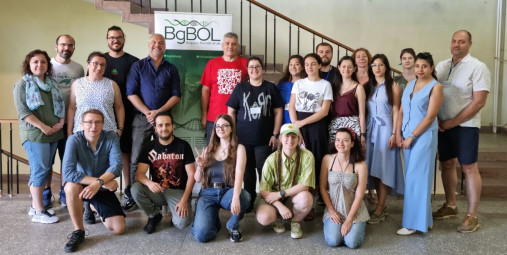The Practical Training Course on Nanopore Barcoding and Genome Analysis, held from July 7–9, 2025, at the Institute of Plant Physiology and Genetics (IPPG-BAS) in Sofia, has successfully wrapped up. Organised by the Bulgarian Barcode of Life (BgBOL) Consortium and supported by the Biodiversity Genomics Europe (BGE) project, the course marked a first-of-its-kind training event in Bulgaria focused on portable sequencing technologies and their use in biodiversity research.
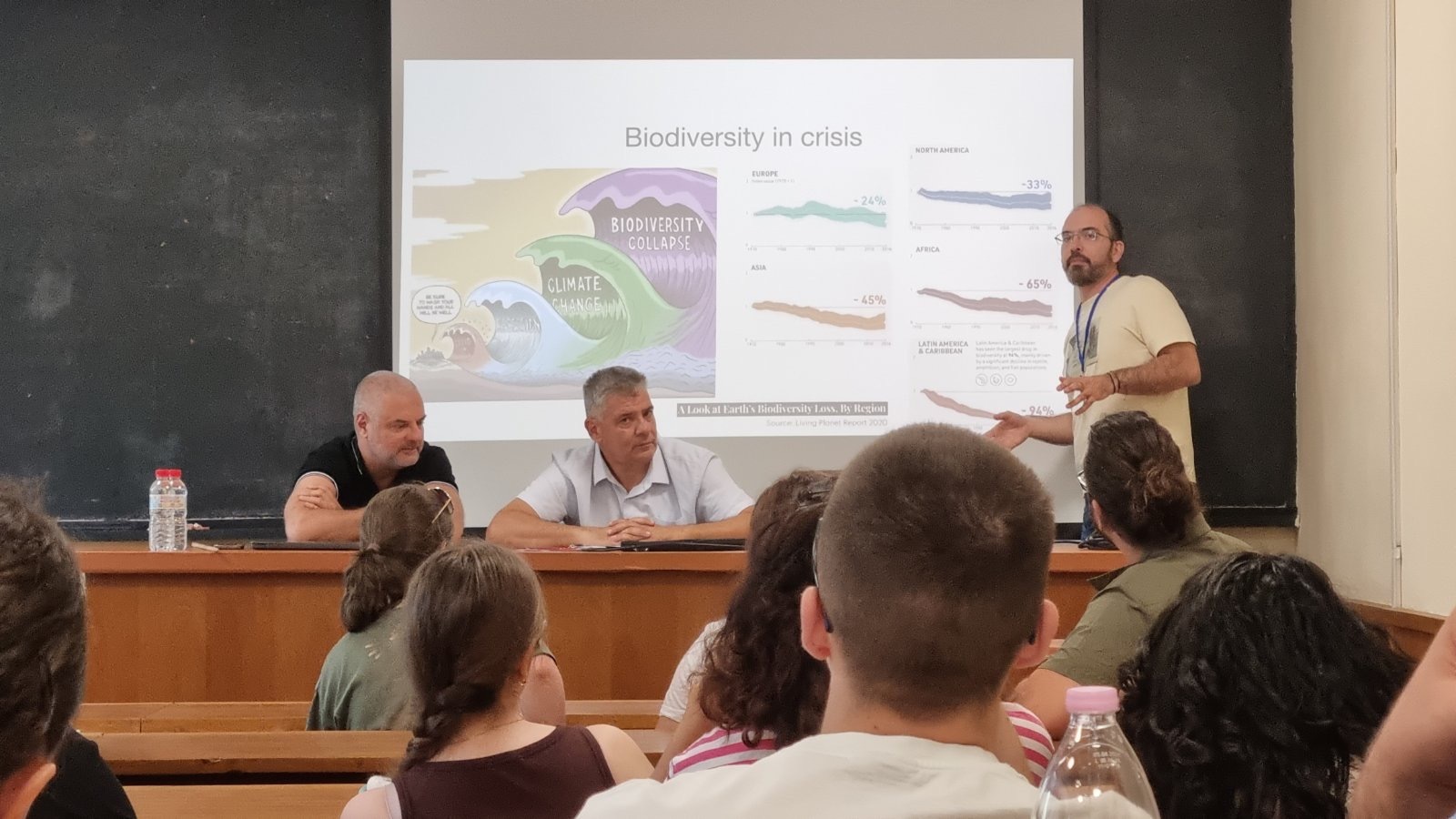
Over three days, students and early-career researchers got hands-on experience with key steps in the DNA barcoding workflow, including PCR, library preparation, and real-time sequencing using the Oxford Nanopore MinION platform. The program emphasised practical skills and direct engagement, with all participants working through the lab steps themselves.
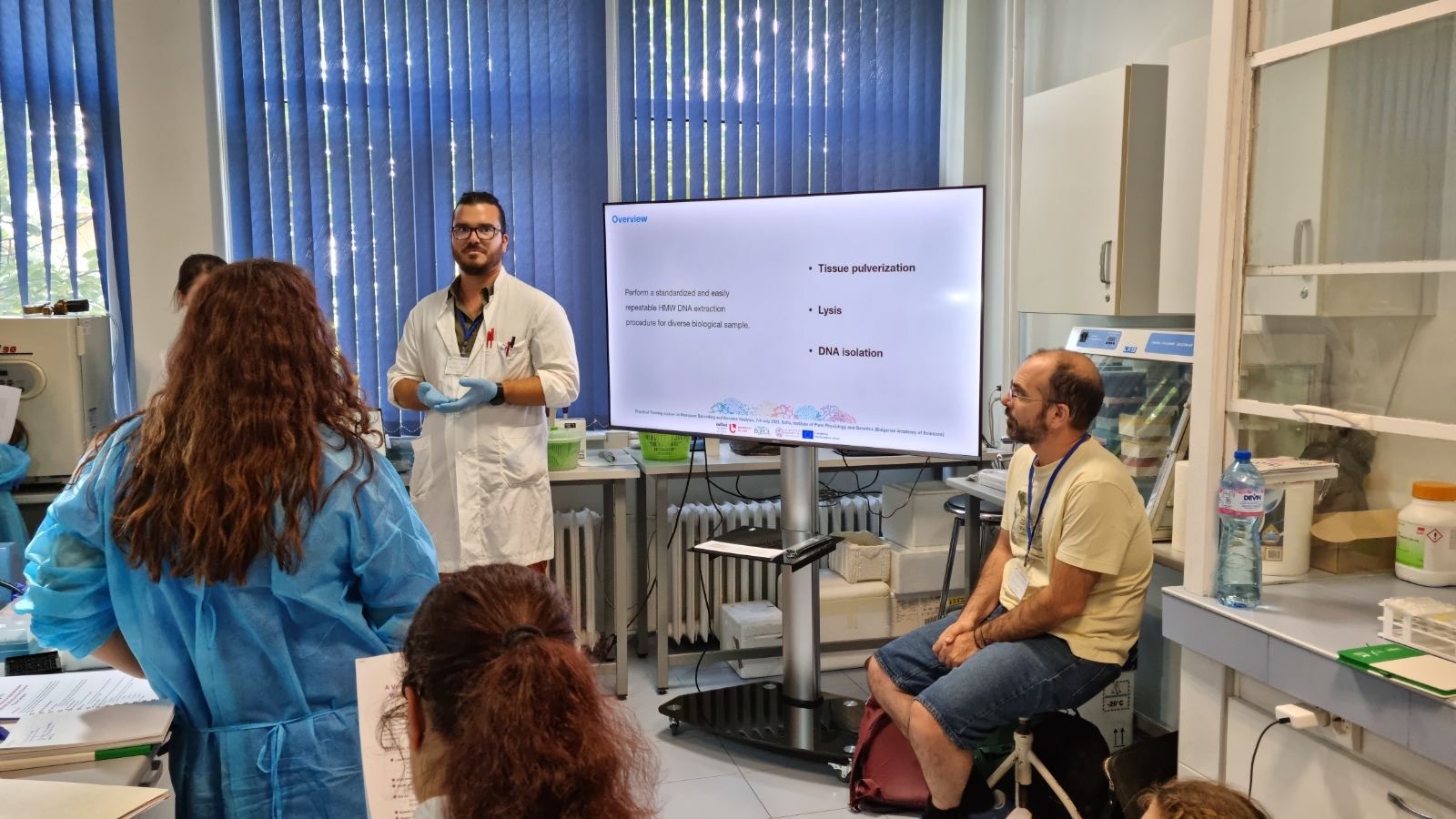
The course brought together a diverse team of instructors from Europe - Alexandros Triantafyllidis, Spiros Papakostas, Konstantinos Gkagkavouzis, and Elisavet Kaitetzidou from the Aristotle University of Thessaloniki (Greece); Tomasz Mamos from the University of Lodz (Poland); and Alexandra Tokareva from the National Museum of Natural History (BAS, Bulgaria). Their combined expertise made for a smooth and engaging learning experience.
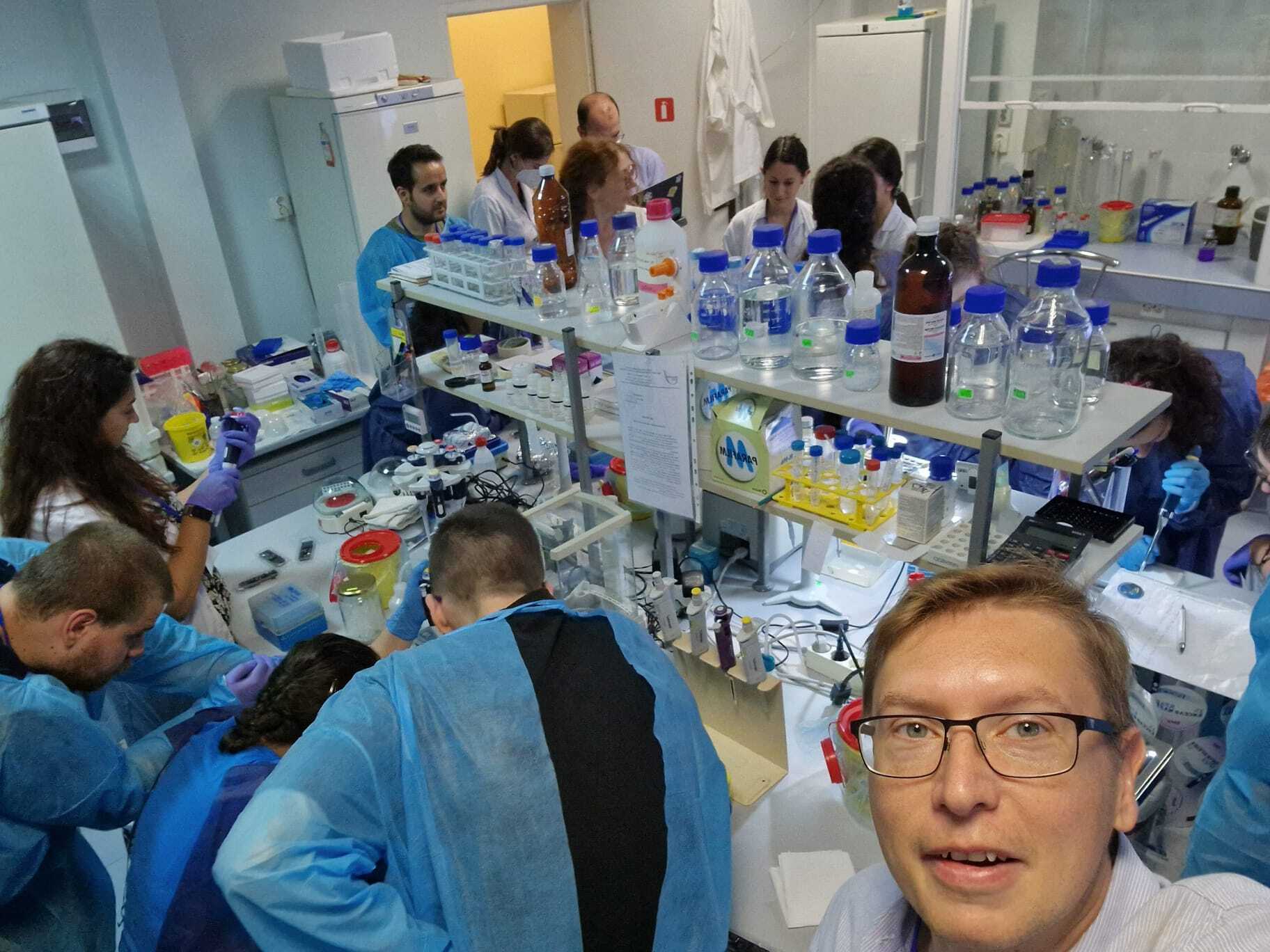
One of the highlights was a live demonstration of DNA extraction and sequencing in real time, which helped demystify the technology and sparked lots of discussion among participants. The course also served as a great platform for informal networking and building connections between Bulgarian, Greek, and Polish teams working on related projects.
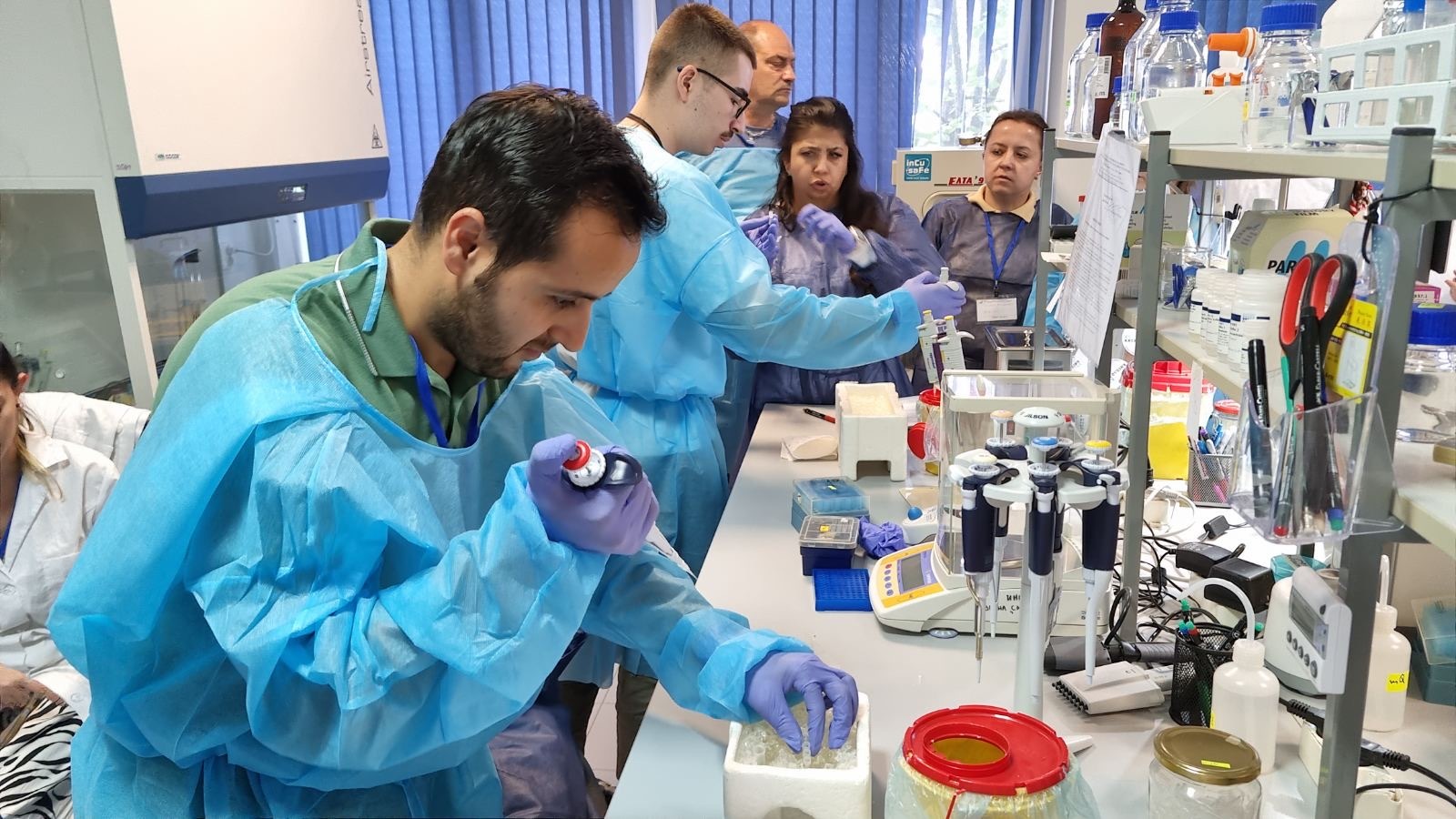
This event could not have happened without the IPPG-BAS team, led by Prof. Valya Vassileva, and their warm welcome and logistical support. Dr. Stefaniya Kamenova (NMNH-BAS), prof. Lyubomir Penev (Pensoft) assoc. prof. Georgi Bonchev (IPPG-BAS) were the drivers for bringing everything together.
The event is a big step forward for building local capacity in biodiversity genomics and opens new doors for future collaboration across the region.
